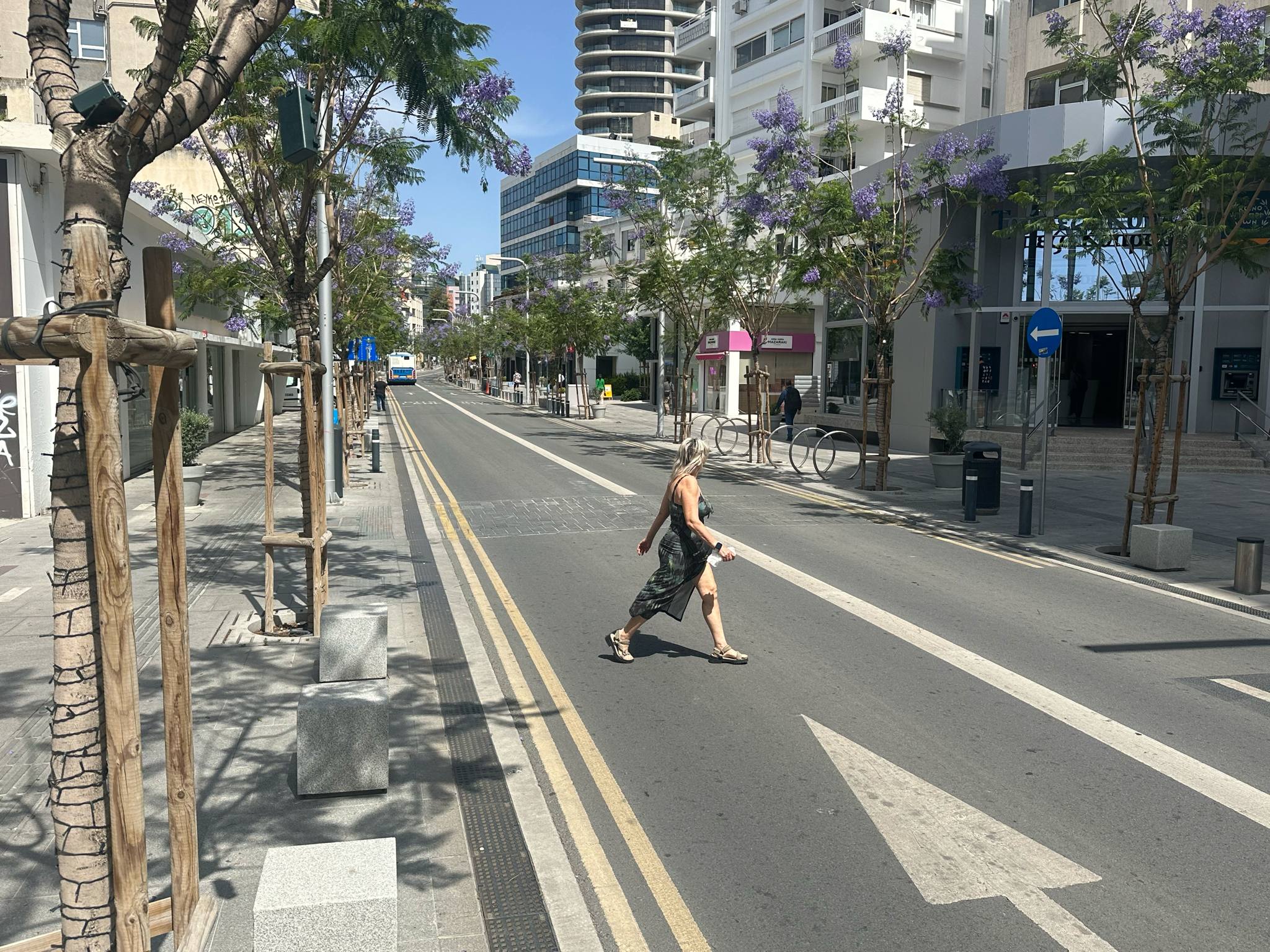Nicosia’s mayor Charalambos Prountzos has defended controversial changes to Makarios avenue, insisting the city has nothing to hide, despite growing questions from both the audit office and the public.
Speaking on state radio on Friday, Prountzos said the audit office was right to examine the matter. He stressed that the municipality was acting openly and in cooperation with authorities.
“We believe the audit office has the authority to examine this specific issue. We are always in excellent cooperation, and act in full transparency, with the audit office,” he said.
His comments came after a report in Philenews suggested there was no traffic impact study for Makarios avenue, even though significant alterations have changed traffic flow and the use of public spaces. The report hinted this gap could expose the project to criticism and further investigation.
Prountzos pushed back against claims that no studies exist. He explained that decisions linked to traffic changes had been sent to a special committee overseeing Makarios avenue. That committee met on June 19 to discuss the proposals.
“When you make decisions about traffic and circulation issues, these decisions are not implemented unilaterally,” he said.
“The police alone do not decide such matters. We submit proposals to the committee. Views are heard, whether they relate to safety, or other issues raised by the audit office and the public. The matter is then examined, and the committee makes a decision.”
However, the mayor admitted that a comprehensive traffic study covering the entire area is still pending.
“We have studied certain aspects, and that’s our position. And that is also the committee’s position, which I can share with you,” he said.
“The position is that the study should not be limited solely to Makarios avenue. It must cover traffic issues across the wider area, where regulations were implemented. For instance, if traffic has diverted from Makarios avenue into surrounding streets, and traffic patterns indicate it has spread to other areas, that is something we must consider.”
Prountzos confirmed that the committee has called for a broader study to assess the impact on traffic, the environment, and local businesses. Work has begun to define what this wider review should cover.
“Right now, we are in the phase of defining the scope of this study, and that’s information I can confirm,” he said.
“A letter has already been sent to the general directorate of development. The letter requests the opinion of the directorate regarding funding for the study.”
Officials are waiting for approval before moving forward.
“Because this is not a simple issue, and we fully respect that,” Prountzos said.
He emphasised that sustainable mobility requires decisions that go beyond one street.
“Sustainable mobility cannot be judged solely within the 500 metres of Makarios Avenue,” he said.
“Sustainable mobility involves difficult decisions and the commitment of major state bodies, such as the sustainable mobility committee. Even Parliament must be involved. So, I believe that if we genuinely want to evaluate and promote sustainable mobility, the regulatory authorities, with full respect for their role, should also assess the true commitment of the state to the completed mobility plan and to the sustainable mobility committee’s proposals.”
Asked whether the matter would be resolved swiftly, Prountzos admitted it could take time.
“Yes, because, as I said, it’s logical. This is an important decision. And I’d like to be frank, for many people, this issue has symbolic significance, namely, the symbolism of removing cars from certain parts of the city. There are mixed views on this matter. A significant part of society wants Makarios Avenue reopened.”
He dismissed suggestions that the committee’s work could be biased.
“No, I don’t agree. Because through this discussion, the real debate that must take place has finally started.”
Prountzos said the goal is to support the redevelopment of Nicosia’s centre while carefully balancing traffic, environmental, and economic concerns.
The debate around Makarios avenue looks set to continue, as Nicosia waits to see whether a wider traffic study will move forward, and whether it can bridge the divide between sustainable urban planning and the daily realities faced by drivers and businesses.







Click here to change your cookie preferences